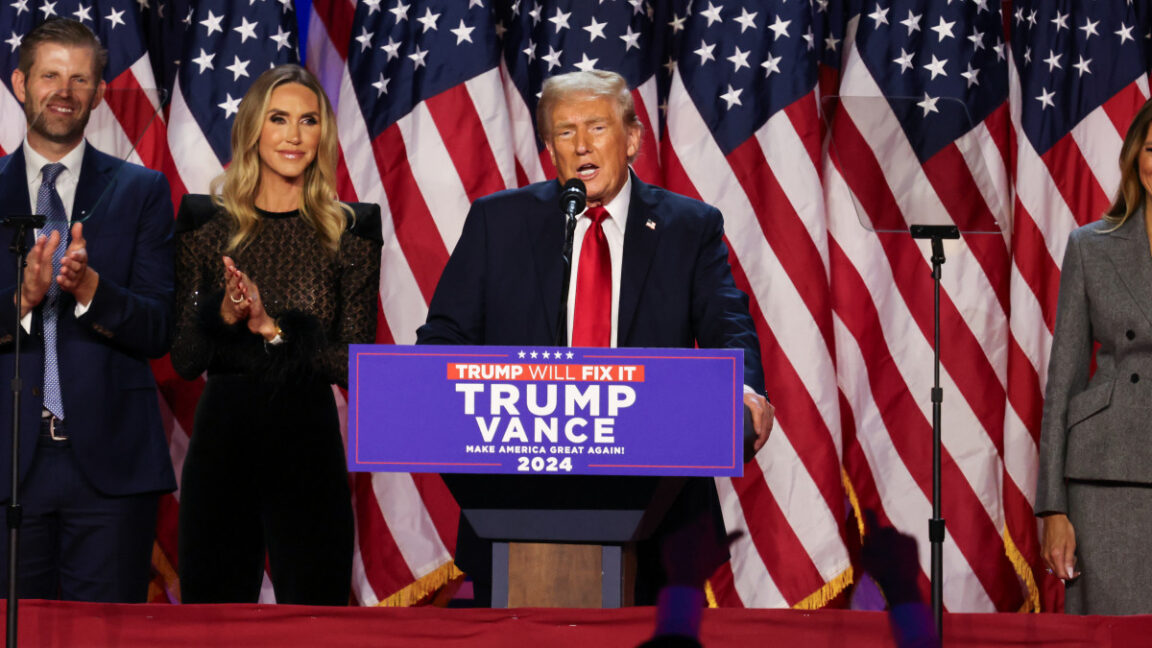That’s not the only uncertainty at play. Just last week, House Speaker Mike Johnson—a staunch Trump supporter—said that Republicans “probably will” repeal the bipartisan CHIPS and Science Act, which is a Biden initiative to spur domestic semiconductor chip production, among other aims. Trump has previously spoken out against the bill. After getting some pushback on his comments from Democrats, Johnson said he would like to “streamline” the CHIPS Act instead, according to The Associated Press.
Then there’s the Elon Musk factor. The tech billionaire spent tens of millions through a political action committee supporting Trump’s campaign and has been angling for regulatory influence in the new administration. His AI company, xAI, which makes the Grok-2 language model, stands alongside his other ventures—Tesla, SpaceX, Starlink, Neuralink, and X (formerly Twitter)—as businesses that could see regulatory changes in his favor under a new administration.
What might take its place
If Trump strips away federal regulation of AI, state governments may step in to fill any federal regulatory gaps. For example, in March, Tennessee enacted protections against AI voice cloning, and in May, Colorado created a tiered system for AI deployment oversight. In September, California passed multiple AI safety bills, one requiring companies to publish details about their AI training methods and a contentious anti-deepfake bill aimed at protecting the likenesses of actors.
So far, it’s unclear what Trump’s policies on AI might represent besides “deregulate whenever possible.” During his campaign, Trump promised to support AI development centered on “free speech and human flourishing,” though he provided few specifics. He has called AI “very dangerous” and spoken about its high energy requirements.
Trump allies at the America First Policy Institute have previously stated they want to “Make America First in AI” with a new Trump executive order, which still only exists as a speculative draft, to reduce regulations on AI and promote a series of “Manhattan Projects” to advance military AI capabilities.
During his previous administration, Trump signed AI executive orders that focused on research institutes and directing federal agencies to prioritize AI development while mandating that federal agencies “protect civil liberties, privacy, and American values.”
But with a different AI environment these days in the wake of ChatGPT and media-reality-warping image synthesis models, those earlier orders don’t likely point the way to future positions on the topic. For more details, we’ll have to wait and see what unfolds.

